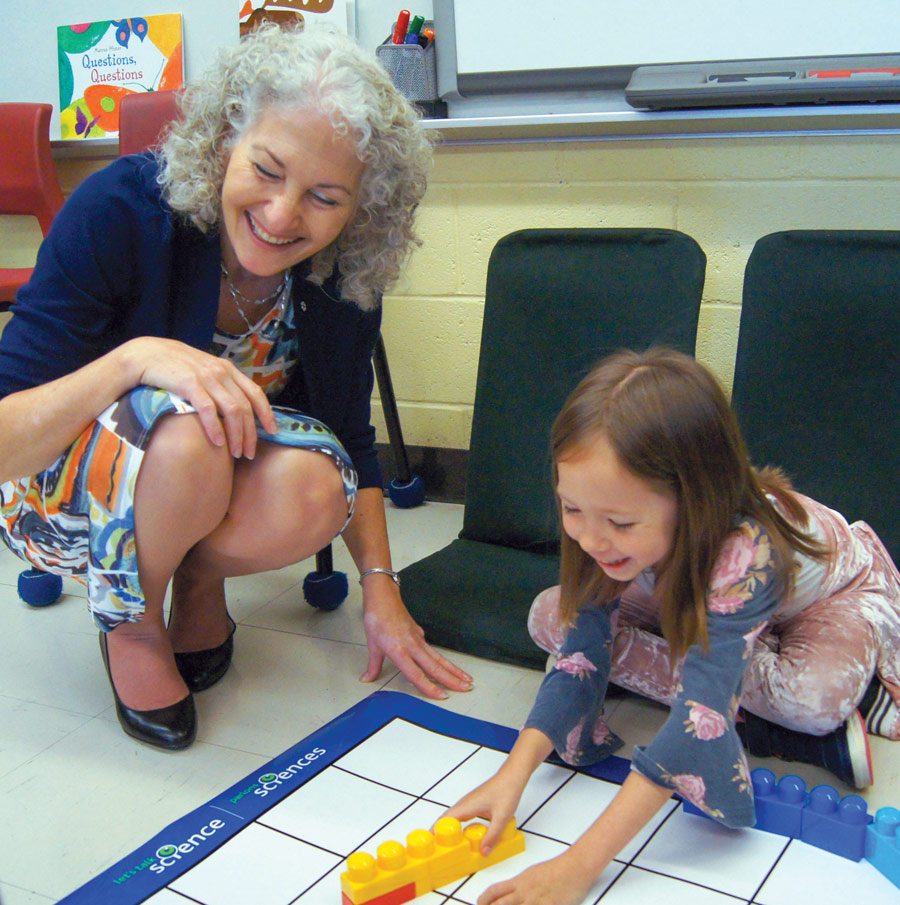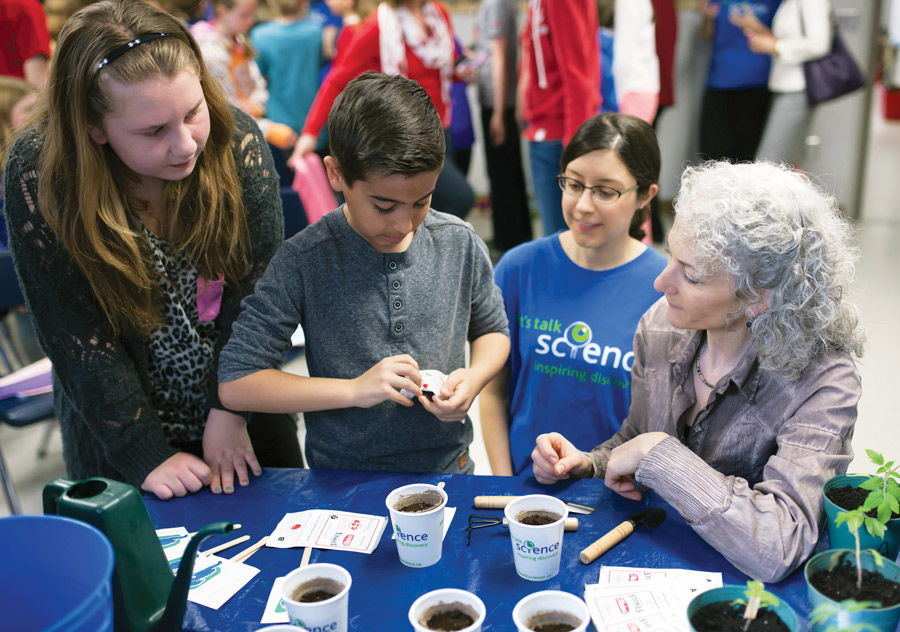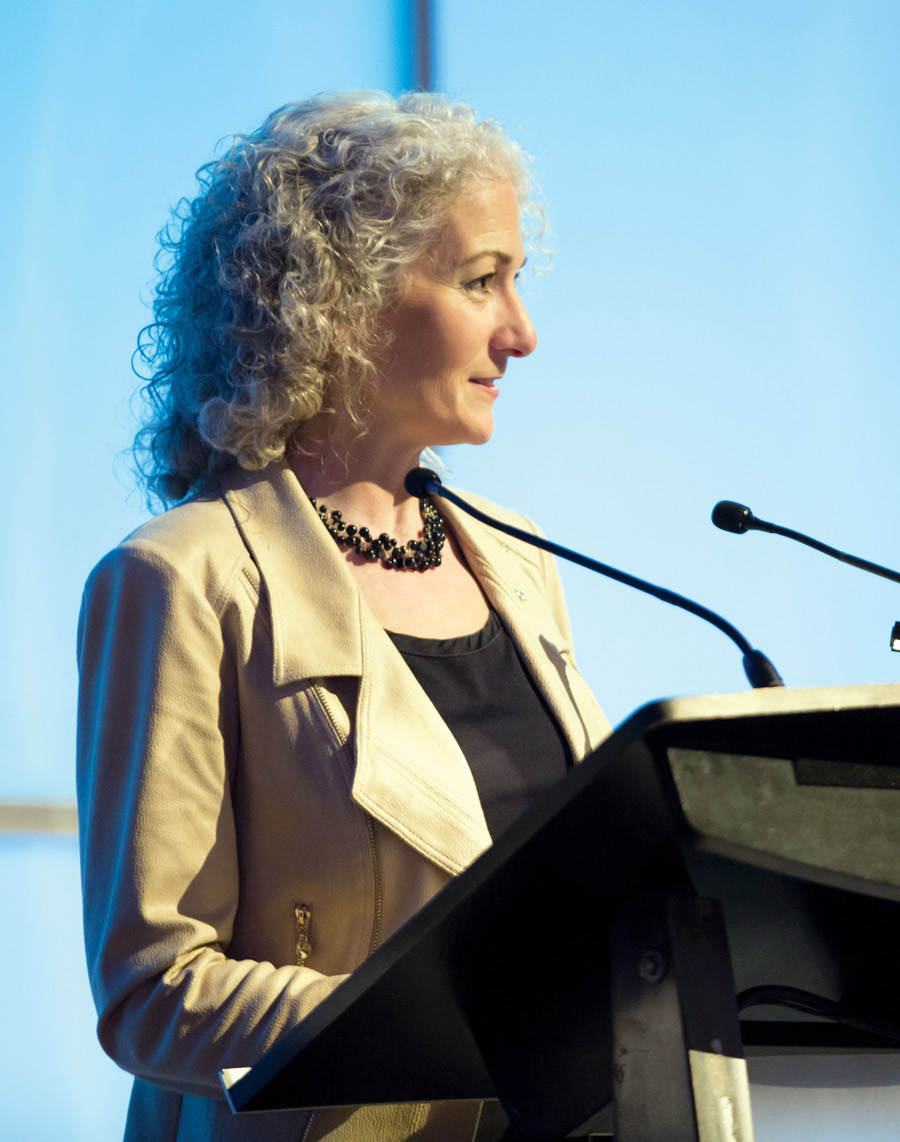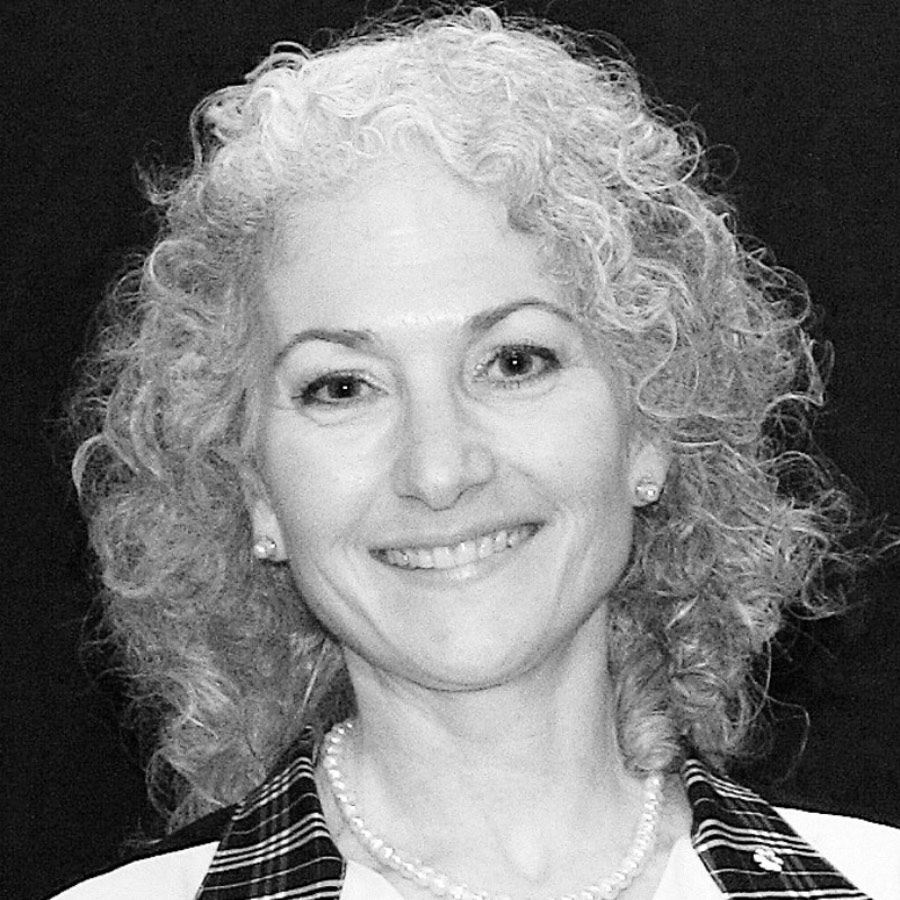he economic recession in the early 1990s resulted in a significant decrease in government funding for scientific research in Canada. Little did I realize then just how that particular federal budget would launch the trajectory of my career into unanticipated and uncharted territory. In 1991, half-way through my doctoral studies in physiology, I was the graduate student representative to the department’s faculty council when dismay at the budget cuts moved quickly through the research community. It was a wake-up call that the ivory tower elitist image of science was not serving the public or researchers and needed to change. It was especially fortuitous for me to be in that place at that time; I was in grad studies having twice failed in my application to dental school (it turns out that I have rather poor spacial acuity).
Fast forward to today and this summer marks the 30-year anniversary of the small volunteer outreach project I launched with a handful of graduate students at Western University in London, Ontario, to engage youth with scientists. That project became Let’s Talk Science, an award-winning national education charity that has impacted an estimated 10 million people through programming designed to help youth prepare for future careers and citizenship roles through STEM (science, technology, engineering and math) engagement. This milestone offers an interesting vantage point to reflect on what has changed, what still must change, and how I have changed during my leadership journey.
The key reason I was able to launch a project that matched graduate student volunteers with local teachers and send them into local schools with hands-on activities, all while doing my doctoral research, was the advent of email. At the time, school correspondence still depended on phone, fax and mail, but on university campuses internet and email were available.


Public recognition of the importance of STEM is now high. Public trust in scientists outstrips that of all other public leaders (e.g., industry, government, religious leaders).2 The COVID-19 pandemic and the rapid rise of disinformation have shined a bright light on the importance of scientific literacy and effective STEM communication. Furthermore, the urgency posed by climate change and the STEM-based innovation that will be required to drive a green economy means that even more must be done to improve STEM education.
In 1993, as I was preparing to defend my Ph.D., I was approached by Joan Francolini, a remarkable woman who was executive director of the Lawson Foundation at the time. She had heard about my outreach efforts and knew I was planning to leave to pursue post-doctoral studies. Francolini suggested that I instead spend two years focusing on growing my project. The Lawson Foundation provided a modest operating budget and Western University offered space and support. Two years later, Francolini secured a funding extension and assembled an advisory committee of local leaders, including Mitchell Baran, who later became the founding chair of the Let’s Talk Science board of directors, and Gordon Osbaldeston, retired clerk of the Privy Council (the highest-ranking public servant in the Canadian federal government). These three people mentored me on business development, social impact, and the role of public policy. Today, Let’s Talk Science is extremely fortunate to have strong support from industry, governments and individuals, although the funding environment has changed enormously.
- More than half of all students still graduate high school without a senior-level math and/or science credit.
- Only 17 percent of students complete Grade 12 physics.
- 5 out of 6 students aren’t even eligible to apply to engineering schools.
Since its inception in 1993, Let’s Talk Science has impacted more than 9.5 million youth in Canada.
Curriculum evolves too slowly. Often it lacks relevance to students’ lives and clear pathways to post-secondary learning and potential careers. Curriculum resources in Canada do not include enough diversity, and the focus on Western science is ubiquitous and seemingly entrenched. The frontiers of STEM fields, such as genomics, artificial intelligence, quantum computing, robotics and more are transforming our world. Traditional knowledge (e.g., Indigenous Ways of Knowing) is increasingly valued for building a more complete understanding of STEM-based issues. Yet high school students too often study material similar to what I studied in high school. Moving forward with fundamentals is critical, but excluding emerging STEM fields and failing to promote the importance of diverse STEM-educated people to tackle our greatest challenges are missed opportunities. The United Nations’ Sustainable Development Goals3 (SDGs) offer a powerful context for education, but too few people know about them.

Thanks to years of impactful mentoring, I have learned three key leadership lessons:
- People are the heart of everything and serving them is paramount.
- A charity can and should be governed and managed like a business.
- Public policy is critical to achieving long-term, sustainable, system-wide impact.
I have been very fortunate to spend my career with an incredible team of staff, volunteers, mentors and partners helping youth become equipped to thrive and contribute in the world. The work is never-ending and even more important now than it was 30 years ago. As I now mentor a remarkable young man in Kathmandu who founded STEM Foundation Nepal, I am learning about the many serious challenges he faces in this small and turbulent part of the world. We both share the conviction that every child deserves to engage in meaningful learning opportunities that unleash and develop their creative genius and critical thinking skills. Investments in STEM education will pay dividends for generations; our future depends on it.
1Let’s Talk Science’s successful response to the COVID-19 pandemic was published in Policy Magazine (Oct, 2020): https://policymagazine.ca/innovating-through-crisis/
2Edelman Trust Barometer (2021): https://www.edelman.com/sites/g/files/aatuss191/files/2021-03/2021%20Edelman%20Trust%20Barometer.pdf
3The 2030 Agenda for Sustainable Development was adopted by all United Nations Member States in 2015, providing an action plan described through 17 Sustainable Development Goals (SDGs): https://sdgs.un.org/goals.

For her efforts in education and youth development, Schmidt has received more than a dozen awards, including an honorary Degree from Ryerson University. She was named a Member of the Order of Canada in 2015 and a Special Fellow of the Royal Society of Canada in 2018.
For her efforts in education and youth development, Schmidt has received more than a dozen awards, including an honorary Degree from Ryerson University. She was named a Member of the Order of Canada in 2015 and a Special Fellow of the Royal Society of Canada in 2018.
